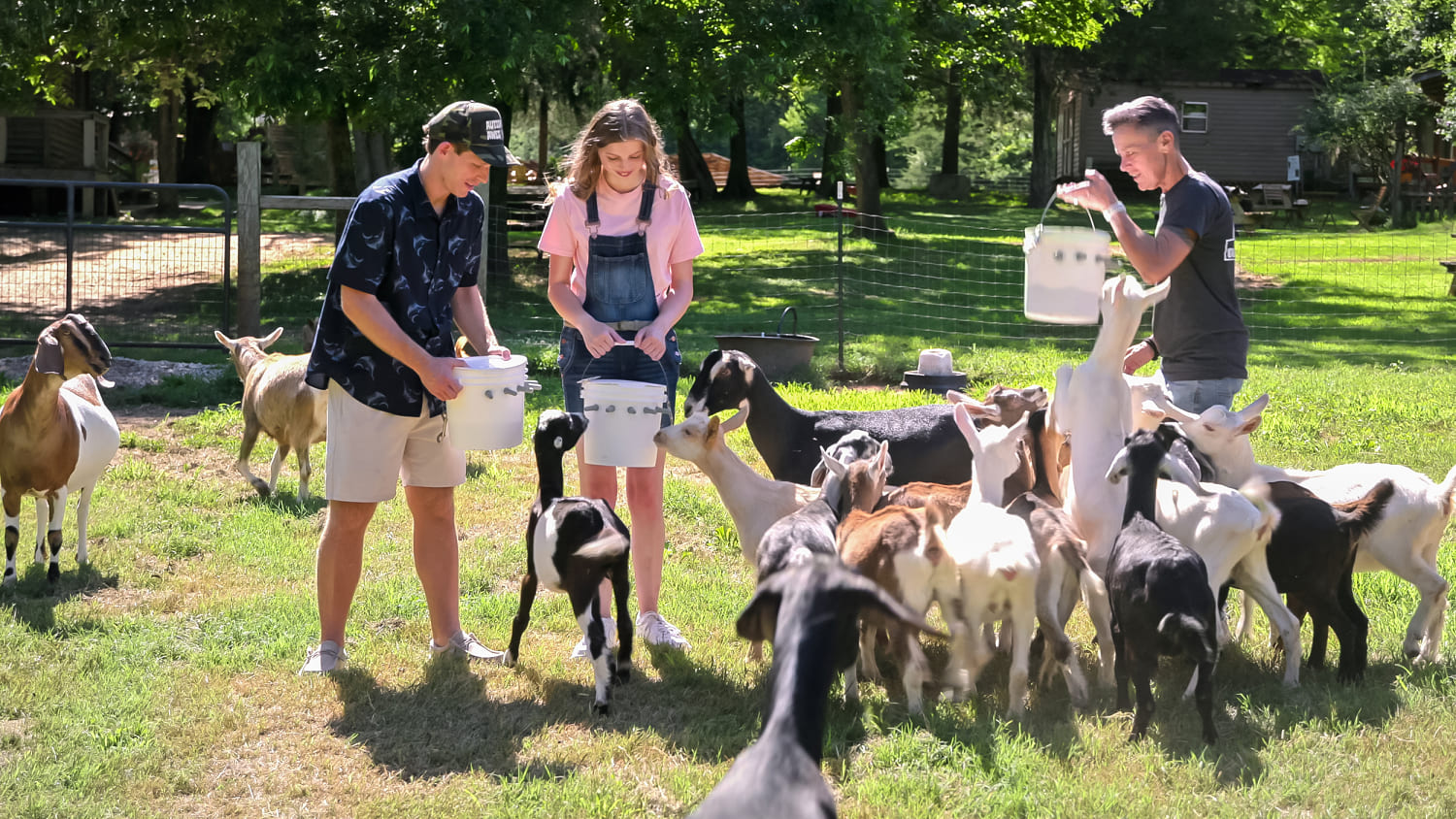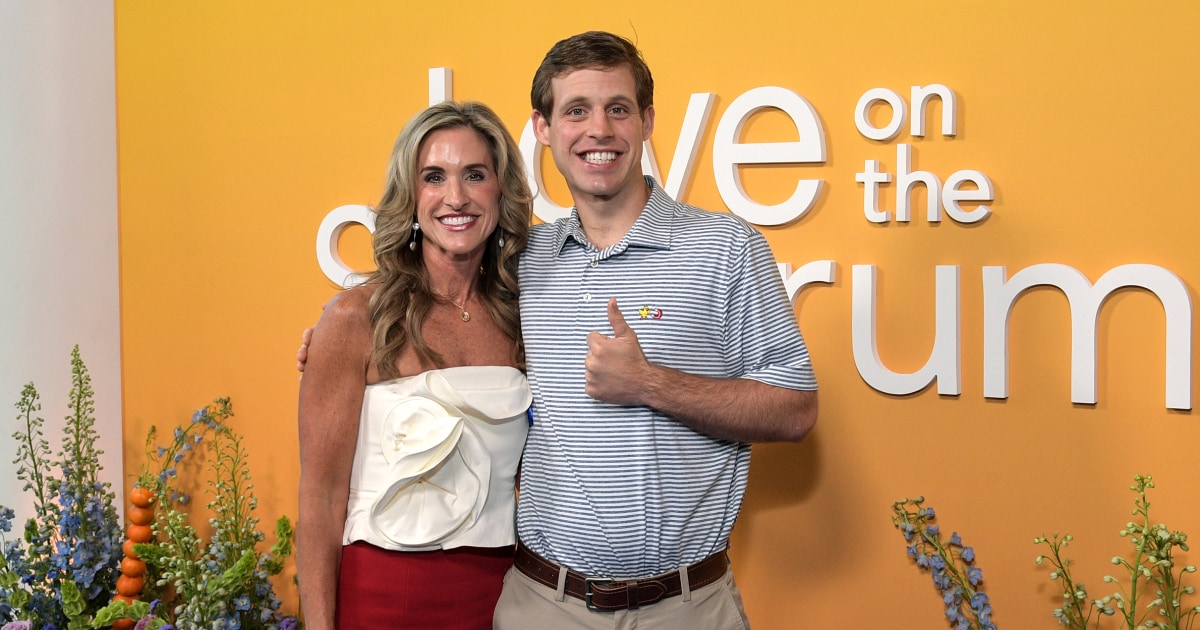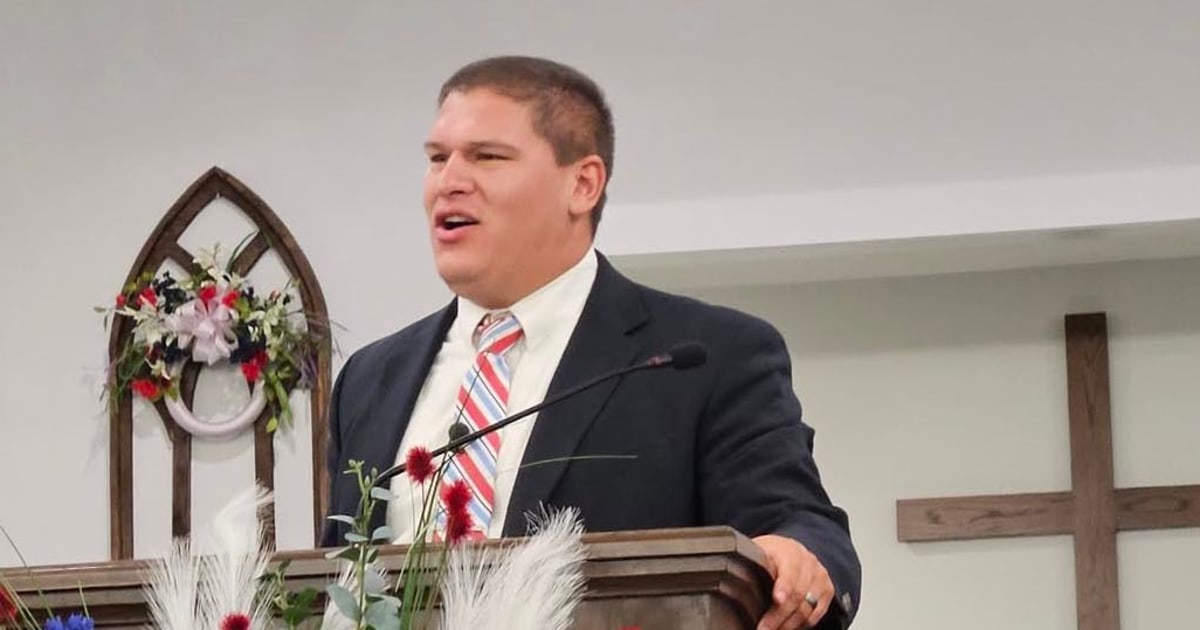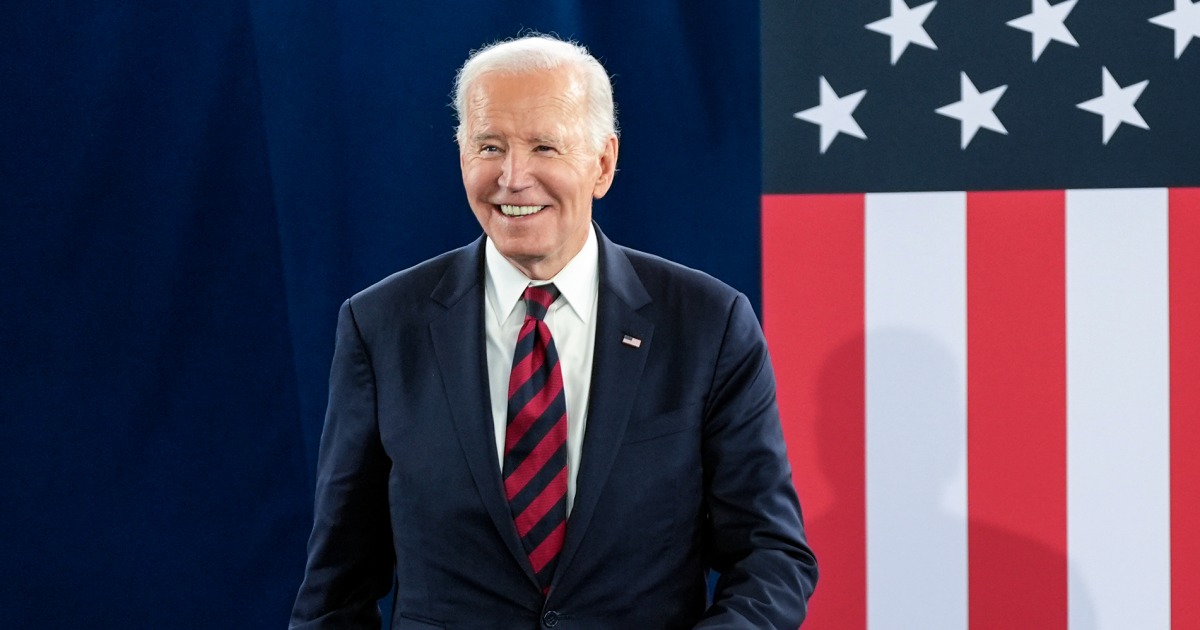
Before parting ways, Tanner gently told Shyann that while he enjoyed their afternoon together, he felt they were better suited as friends. She agreed.Tanner, however, did feel a connection with Callie, a 21-year-old advocate for individuals with Williams syndrome, a rare genetic disorder marked by developmental delays and health problems. People with the syndrome often have notably social, outgoing personality.
“Callie is an open chapter,” Nicci says, noting that the two families recently gathered for dinner and had a “lovely time.”
“There was a lot of chemistry. They bounce off each other very well, and let’s just see where it goes,” Nicci adds. “They’ve been coming to see us, and we’re planning to visit them next. They have a pool and horses, and Callie wants to show Tanner her world.”
How she responds to show backlash
While speaking with TODAY.com, Nicci addressed some of the criticism surrounding the show’s portrayal of dating on the autism spectrum — particularly its emphasis on individuals often described as “high-functioning.”
“I want people to understand that Tanner hasn’t always looked or interacted the way he does now,” Nicci says. It took decades of therapy — including applied behavior analysis, or ABA — to help him reach this point.
“And while Tanner is considered high-functioning,” Nicci says, “he has very significant challenges that become clear when you talk to him. That’s when you think, ‘Oh, OK — I understand why he doesn’t have a driver’s license.’”
Nicci acknowledges that many families in the autism community are “living an unbelievably hard reality,” raising children who may never speak or live independently.
She hopes to highlight some of these experiences on her podcast “Talk to Me Sis” with Lise Smith, mother of Connor Tomlinson, another “Love on the Spectrum” star. Connor, like Tanner, has strong verbal communication skills and is able to manage basic self-care.
“We’ve got some exhausted, depressed caregivers — and their stories need to heard, too,” Nicci says. “I don’t want people to think we’re out here saying, ‘Autism is this happy, rosy thing with a bow on it, and look how far our kids came, we’re such amazing moms.’ We’re just very lucky because our boys did have a lot of capacity for growth. They had a good prognosis.”
For parents who just received an autism diagnosis, Nicci also wanted to share some advice.
“When Tanner was diagnosed (in the early 2000s), they were pushing a gluten-free, casein-free diet — so we tried it. I thought, ‘We are going to beat this. I’m going to fix him.’ I kept reading about all these so-called cures,” Nicci says. “I really thought there was a finish line to this — there is a resolution, and I thought that as a mother, my job was to help him overcome his autism, and I really ran myself ragged.”
Looking back, Nicci recognizes that much of this was unnecessary.
“What he really needed was for us to slow down a bit, figure out his triggers, understand his sensory issues, and learn how to help him help himself,” she says. “I was always thinking there was some expert out there who had the answer. But in autism, there’s no one-size-fits-all solution. What there is, is consistency, hard work over time, and realizing that your best outcome might not be what you expected — but it can still be really good. And that took me a long time to understand.”
She pauses, reflecting. “Instead of trying to get rid of this, we learned to make it bloom.”








